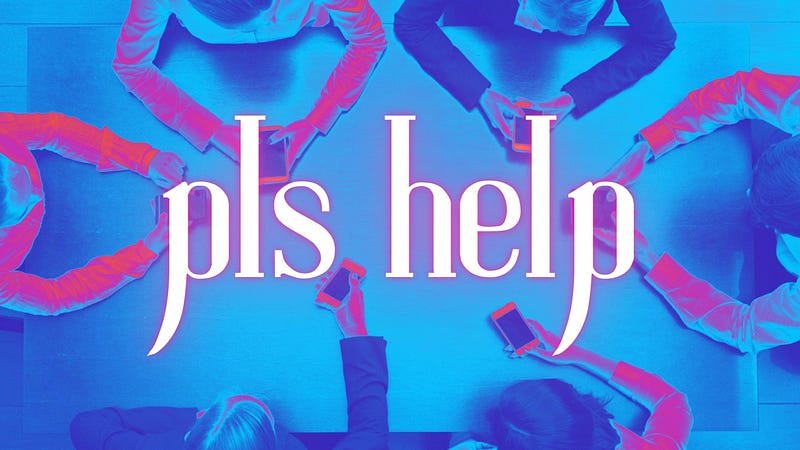# Rethinking Our Digital Interactions: Lessons from Plato
Written on
Chapter 1: The Digital Communication Dilemma
In today's digital landscape, it's all too easy to encounter abrasive behavior online. A casual scroll through a politically charged Twitter thread or a Facebook comment section often reveals a shocking level of hostility. If we were face-to-face, such exchanges would likely lead to confrontations.
This phenomenon arises because online communication strips away the usual social consequences we face in real life. The subtleties of non-verbal cues—like facial expressions and body language—along with the fear of disapproval or physical repercussions, vanish in the digital realm. Thus, I propose we refer to this unique form of interaction as "Digital Speech," as it operates on entirely different rules compared to traditional communication.
In our everyday lives, unless we work in high-profile roles such as politics or public service, we often escape the usual social accountability.
Section 1.1: The Road Rage Analogy
Engaging in online arguments can resemble the frustration experienced during road rage.
When driving, we can all recall moments of yelling at a reckless driver or experiencing a surge of anger when someone cuts us off. Encased in our cars, we feel shielded from the repercussions of our outbursts, making it tempting to vent our frustrations.
However, unlike driving, social media is an open forum where our words can be permanently recorded and widely shared, intensifying the issues of political and moral polarization in contemporary society.
Subsection 1.1.1: The Ring of Gyges and Morality

Reflecting on Plato's allegory of The Ring of Gyges is crucial here. In this story, Socrates and Glaucon debate morality, with Glaucon arguing that morality is a social construct. He illustrates this by describing a ring that renders its wearer invisible, allowing them to act without consequence. This scenario suggests that our moral compass is largely influenced by social accountability.
Socrates counters that a truly moral individual wouldn't desire such power. However, modern research by Jonathan Haidt indicates that our aversion to social rejection significantly shapes our moral behavior.
Today, the Ring of Gyges isn't just a philosophical concept; it's a metaphor for our smartphones, which grant immediate access to a platform where we can express ourselves without fear of accountability.
Section 1.2: The Absence of Digital Etiquette
From a young age, we learn the importance of manners and civility. However, no such lessons accompany our entry into social media.
As we transition into adulthood and acquire smartphones, we engage with platforms like Facebook and Twitter without any guidance on maintaining civility online. This absence of etiquette leads us to revert to primitive, tribalistic behaviors, unchecked by social norms.
Chapter 2: The Rise of Echo Chambers
The first video, Social Media is Broken. Can We Fix It?, delves into how our online interactions can become toxic and explores potential solutions to these issues.
The digital landscape has become a breeding ground for echo chambers, where media is tailored to our preferences, reinforcing our beliefs. This creates an environment where opposing viewpoints are easily dismissed and categorized as “the enemy.”
As we immerse ourselves in an information bubble, we only encounter perspectives that align with our own, solidifying our biases.
Section 2.1: Us vs. Them Mentality
The information we consume shapes our understanding of truth. When faced with someone who challenges our views, we often respond with hostility, further entrenching the divide.
In this environment, civil discourse is nearly impossible. The lack of accountability encourages aggressive behavior, and it rewards the most divisive comments with likes and shares.
The political and social systems we navigate daily stand in stark contrast to the tribalism fostered by social media.
The second video, How To Fix Social Media Videos Anywhere (It's Not What You Think), offers insights into transforming our online interactions into more constructive dialogues.
Section 2.2: Breaking the Cycle of Negative Interaction
To counteract the negativity of online interactions, we must start with small changes. Recognizing when we feel provoked can help us pause before reacting impulsively.
Engaging in heated arguments online rarely leads to productive outcomes. Instead of "destroying" someone’s argument, we need to engage respectfully, as if we were conversing in person.
Reframing our approach to online interactions can help us foster a more civil digital environment. Even if others do not reciprocate this respect, we can choose not to contribute to the negativity.
In conclusion, while it may take time for respectful dialogue to emerge, we can each play a part in improving our online interactions. By embracing patience and civility, we can work towards creating a more respectful digital space for everyone.
Yours,
Tom Mitchelhill
For more insights into vital ideas, consider subscribing to my premium newsletter or following my Medium publication, Emergent. Connect with me on Twitter for further discussions.